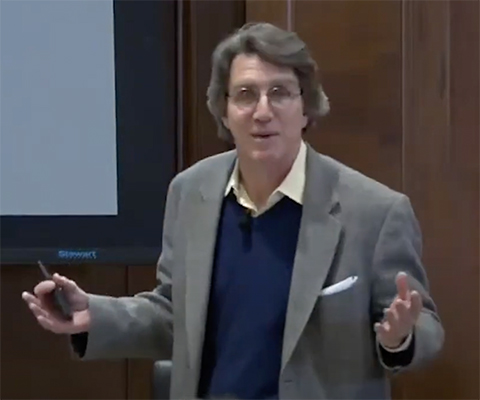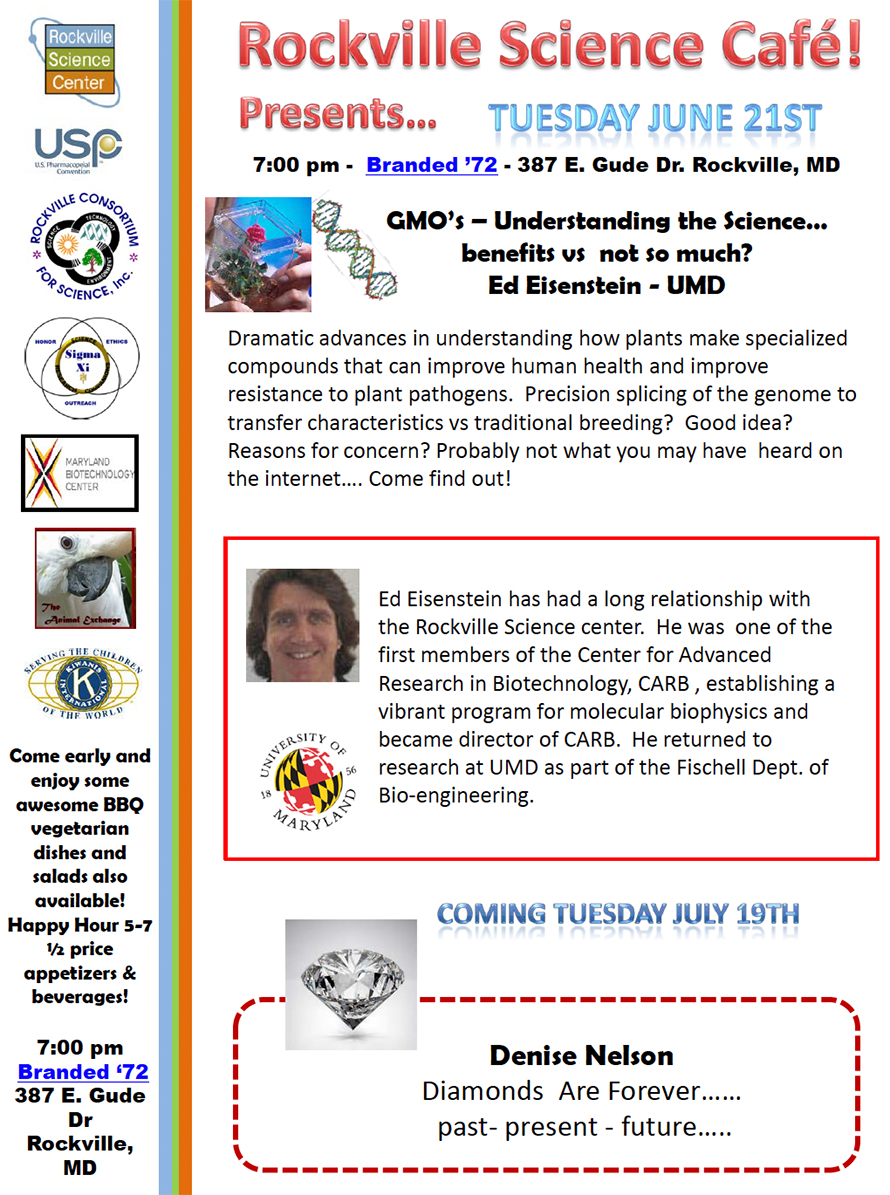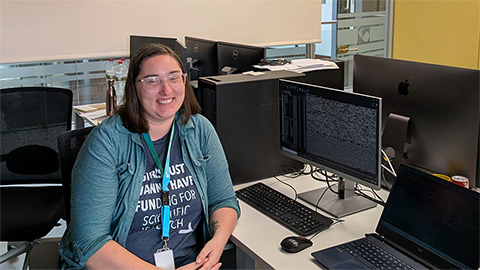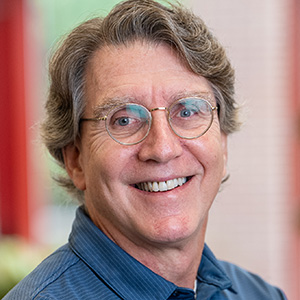
From curiosity to conversation: My first science café
Why was I so nervous? I’d spoken in hundreds of seminars and classes, in front of large audiences, and even politicians and lawmakers. So, why was I clammy and pacing?
Admittedly, I’d never explained my research to a crowd of nonscientists relaxing over food and drink at a local tavern. Was I afraid the audience might oppose genetically modified organisms? Or question the environmental risks of recombinant DNA?

It was 2016 and I was hosting one of the first science cafés for the Rockville Science Center, a nonprofit I’d established with a group of interested citizens and a local chapter of the research honor society, Sigma Xi.
With biotechnology booming and many major government labs nearby, we thought Rockville, Maryland was the ideal location for a center focused on explaining science to the public. We wanted to put on science presentations in the style of Ben Wiehe.
Wiehe now heads the Science Festival Alliance, but back in the day, he worked at Boston’s public TV station and pioneered the concept of science cafés. He used to walk into Boston bars and start talking about all things science. No slides, no flip charts, just conversation. And that’s what we wanted to do: share science in bars, restaurants, community centers — anywhere.
I was the inaugural leader, giving the first presentation to a packed crowd.
As soon as I started chatting about the research in our university biotechnology institute, I realized my anxiety was unfounded. Everyone paid rapt attention. Although my presentation lasted only 10 minutes, the audience questions kept me under the spotlight for over an hour.
The audience was more receptive to technology than opposed. It was really quite inspiring. A few questions pertained to translating basic science into cures and therapies: How long does it take? How much does it cost? How complicated is it? Parents asked how their children could learn how to do science that makes a difference. Some asked what the students we trained went on to do. And a couple of people asked about risk, compliance with regulations, and safety. But really not too many.
Afterward, more than a few people offered to buy me a drink to continue the conversation.
That science café allowed me to connect with the public and communicate all types of science. I’ve done more than a handful since, but I’ll never forget my first. You should host one too; it’s a great experience — for everyone.

Enjoy reading ASBMB Today?
Become a member to receive the print edition four times a year and the digital edition monthly.
Learn moreGet the latest from ASBMB Today
Enter your email address, and we’ll send you a weekly email with recent articles, interviews and more.
Latest in Opinions
Opinions highlights or most popular articles

Women’s health cannot leave rare diseases behind
A physician living with lymphangioleiomyomatosis and a basic scientist explain why patient-driven, trial-ready research is essential to turning momentum into meaningful progress.

Making my spicy brain work for me
Researcher Reid Blanchett reflects on her journey navigating mental health struggles through graduate school. She found a new path in bioinformatics, proving that science can be flexible, forgiving and full of second chances.

The tortoise wins: How slowing down saved my Ph.D.
Graduate student Amy Bounds reflects on how slowing down in the lab not only improved her relationship with work but also made her a more productive scientist.

How pediatric cataracts shaped my scientific journey
Undergraduate student Grace Jones shares how she transformed her childhood cataract diagnosis into a scientific purpose. She explores how biochemistry can bring a clearer vision to others, and how personal history can shape discovery.

Debugging my code and teaching with ChatGPT
AI tools like ChatGPT have changed the way an assistant professor teaches and does research. But, he asserts that real growth still comes from struggle, and educators must help students use AI wisely — as scaffolds, not shortcuts.

AI in the lab: The power of smarter questions
An assistant professor discusses AI's evolution from a buzzword to a trusted research partner. It helps streamline reviews, troubleshoot code, save time and spark ideas, but its success relies on combining AI with expertise and critical thinking.

